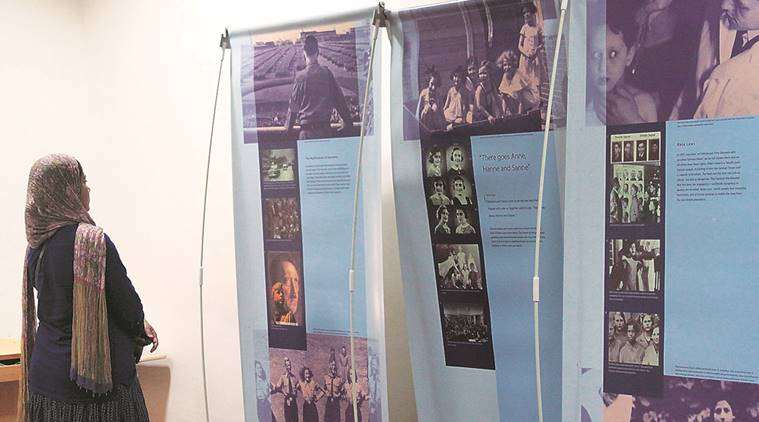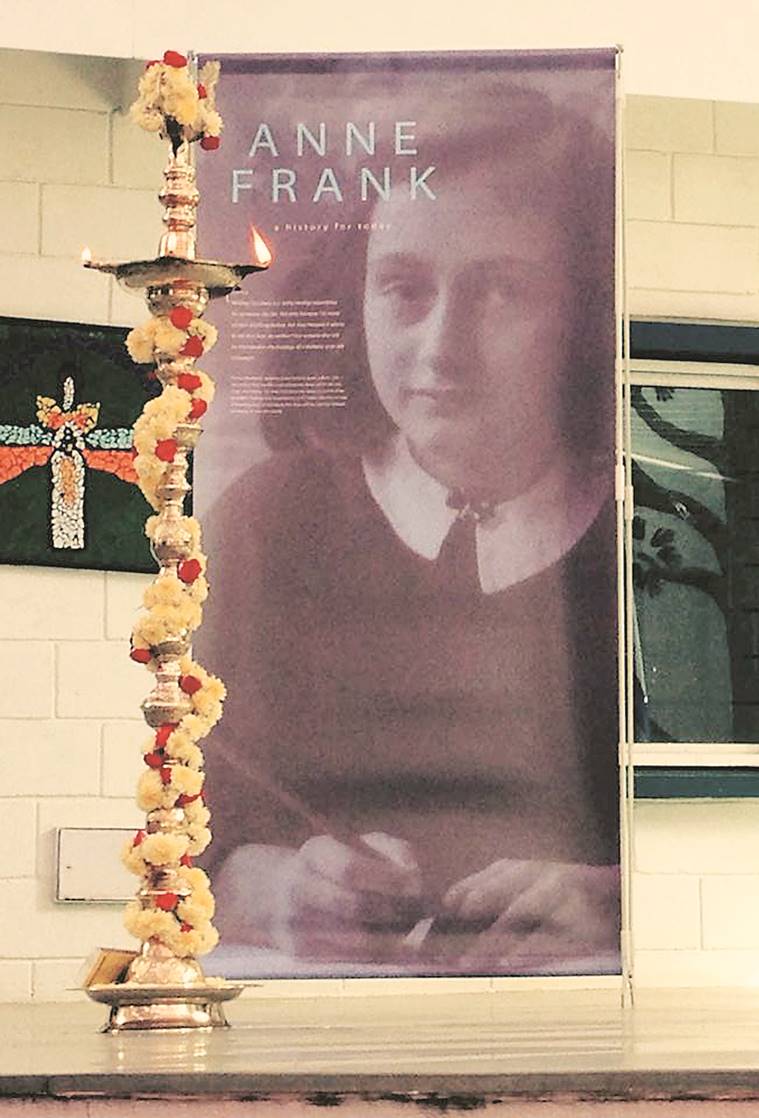A Historical Narrative
A travelling photo exhibition tells the story of Anne Frank against the background of the Holocaust and World War II. At the heart of the exhibition are quotations from Frank’s diary and family photographs.

The exhibition on display at St Kabir school in Chandigarh.
ON her 13th birthday, Anne Frank is given a diary. Just a few weeks later, her life is turned upside down when she has to go into hiding. For over two years, she keeps a record of her thoughts, feelings and experiences in the diary. She has no way of knowing that in the future it will be read by millions all over the world.
“Anne Frank – A History for Today”, an international photographic travelling exhibition about the celebrated diarist and victim of Nazi persecution during World War II, travels to Chandigarh for the first time. St Kabir Public School, Chandigarh, in association with The Anne Frank House, Amsterdam, and PeaceWorks, an initiative of The Seagull Foundation for the Arts, Kolkata, brings the exhibition to Chandigarh, to provide space for students, educators and the general public to engage first-hand with a significant aspect of world history. After travelling to over 60 countries, the series of 32 photographic panels places the story of Anne Frank against the backdrop of the Second World War and the Holocaust.
At the heart of the exhibition are quotations from Frank’s diary and family photographs. This is accompanied by other personal narratives about the consequences of discrimination and persecution. It also includes a screening of The Short Life of Anne Frank directed by Gerrit Netten.
Anne Frank’s diary is perhaps the most popularly read account of the atrocities of war told from a child’s point of view, which makes it pertinent for today’s youth. “This is a project that is very dear to me and I organised one edition of the exhibition previously in Bangalore. Ever since I visited the Anne Frank House in Amsterdam in 2008, I nursed the desire to share that moving experience with people in India in some way. These stories should be included in the teaching-learning process, and the diary forms part of the curriculum for Class X students here,” says Deeptha Vivekanand, who is organising the exhibition at St Kabir.
The exhibition, she adds, is important for students to engage with, for it throws light on issues of discrimination, human rights, identity and living with diversity. The diary is a shining example of how personal accounts help people understand the events that shaped world history.
The showcase strives to encourage visitors to think about concepts such as tolerance, mutual respect, human rights and democracy and that a society where differences between people are respected does not come about by itself, she says.
The showcase strives to encourage visitors to think about concepts such as tolerance, mutual respect, human rights and democracy and that a society where differences between people are respected does not come about by itself, she says.
For the general public, the exhibition is open from Saturday, October 13 to 18 at St Kabir Public School, Sector 26, Chandigarh










.png)











 The exhibition on display at St Kabir school in Chandigarh.
The exhibition on display at St Kabir school in Chandigarh.
No hay comentarios:
Publicar un comentario